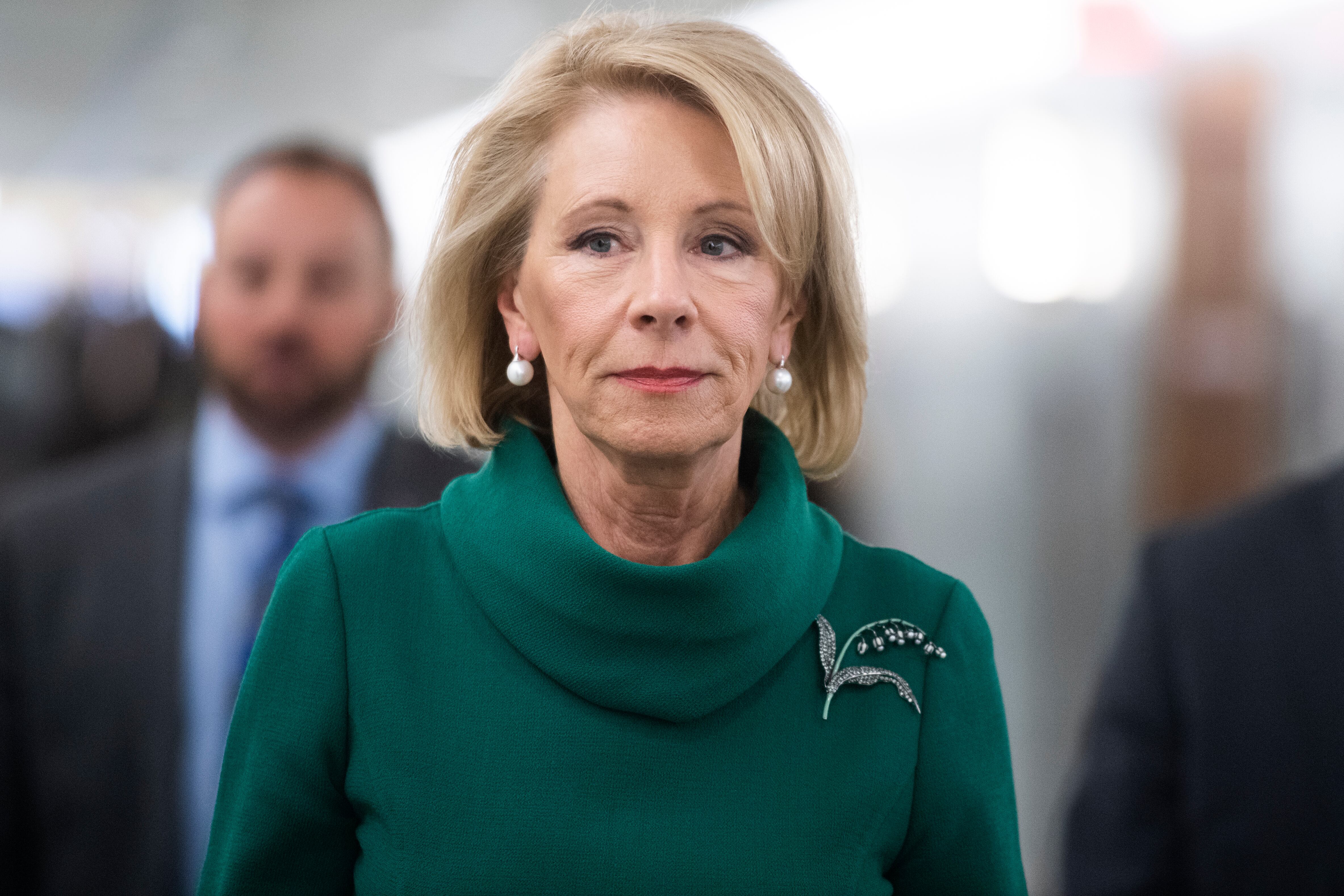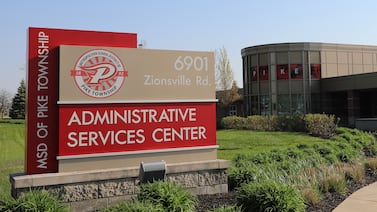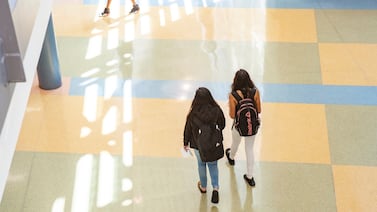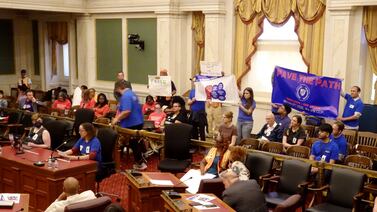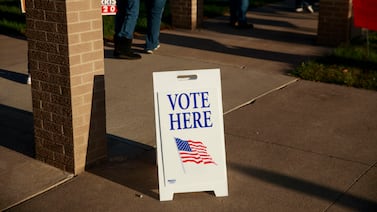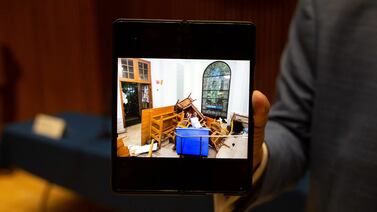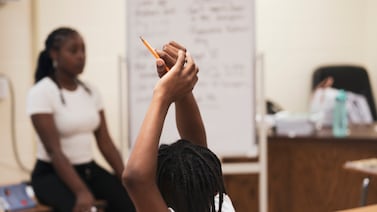A Michigan group proposing a voucher-like school scholarship program turned in petitions for an initiative organizers hope to put before the Republican-led Legislature for approval this year.
Let MI Kids Learn, backed by former U.S. Education Secretary Betsy DeVos, turned in more than 500,000 signatures to the state Wednesday afternoon.
The two-part initiative would create a tax credit program for donors to a Student Opportunity Scholarship program that would help families pay for children’s education, including private tuition and home-school materials.
Supporters say the program would empower parents and help students catch up from COVID-related learning losses. Critics say the scholarships could undermine traditional public education and reduce state revenues.
The group needs 340,047 valid signatures to advance the initiative to the Legislature but will first need approval from the Michigan Bureau of Elections and Board of State Canvassers.
Let MI Kids Learn missed the deadline to submit petition signatures for the 2022 ballot.
Organizers hope the initiative bypasses the ballot altogether and instead is adopted by lawmakers this year or next, if Republicans retain their majorities in the Michigan House and Senate in upcoming November elections.
Democratic Gov. Gretchen Whitmer vetoed similar legislation last fall, citing projections it could reduce state revenue by $500 million annually while arguing it could turn “private schools into tax shelters for the wealthy.”
The Michigan Constitution, however, includes a rare provision allowing lawmakers to enact legislation initiated by petition drives without a signature from the governor. And GOP gubernatorial nominee Tudor Dixon supports the scholarship plan.
“We’re pretty darn confident” Republicans will retain legislative majorities next term, but “it’d be pretty darned nice to just get it over with,” Let MI Kids Learn spokesperson Fred Wszolek told Bridge Michigan.
Timing will depend on processing speed at the Michigan Bureau of Elections, which is reviewing other petitions and will help oversee the statewide general election in November.
Elections officials took less than two months to review — and ultimately recommended that canvassers reject — signatures for a failed ballot proposal this year that would have capped payday-loan interest rates.
Staffers are currently reviewing petition signatures for abortion rights and voting rights constitutional amendments that could still make it to the November ballot.
“They’ve proven they can move this stuff pretty darn quickly when they want to,” Wszolek said, urging a fast review.
Let MI Kids Learn has raised more than $8 million for the petition drive and campaign, according to July disclosure reports submitted to the state. Of that, a combined $3.2 million came from Betsy and Dick DeVos, along with another $1.1 million from Doug and Maria DeVos.
At least 23 states have established similar tax credit programs over the past 15 years. Those programs have been linked to some academic improvements and increased college access, according to a Bridge review, but critics say the research is mixed at best and often funded by school choice boosters.
The initiative is the second Republican-backed petition in the past two weeks to submit signatures after missing a deadline for this November’s ballot, following Secure MI Vote, a petition to tighten election rules by requiring voter ID, limiting mail-in ballots and banning outside funding for elections.
Organizers of that effort also hope it is adopted by the Legislature.
Jonathan Oosting is a reporter for Bridge Michigan. You can reach him at joosting@bridgemi.com.


